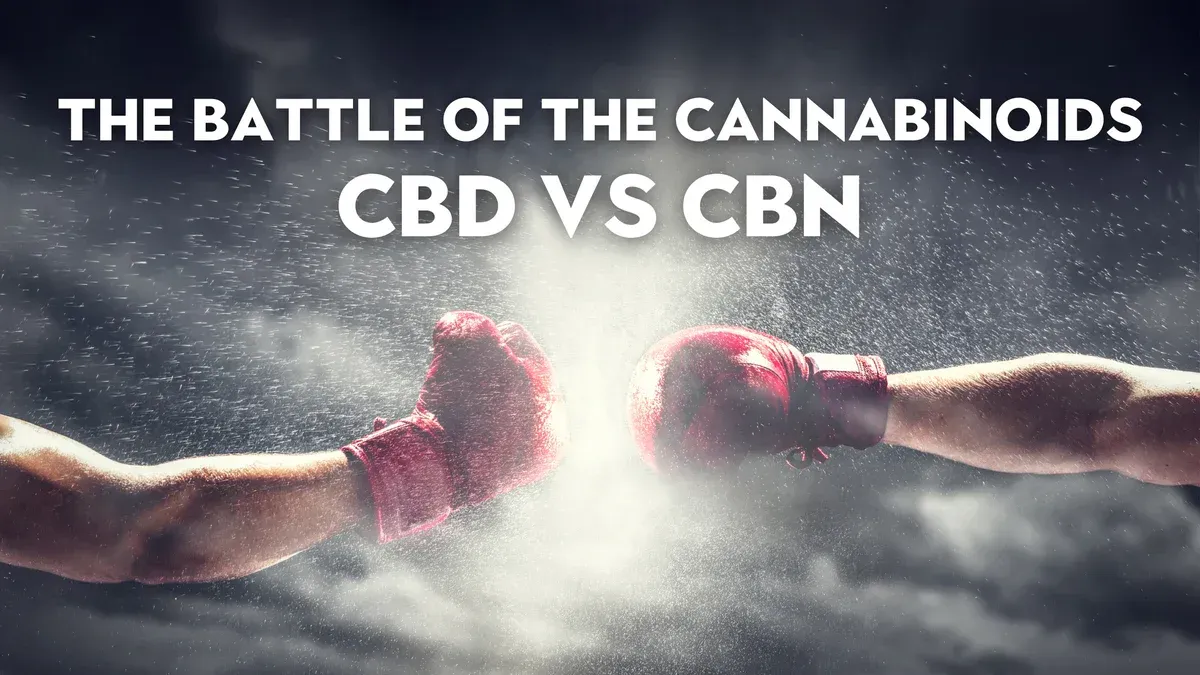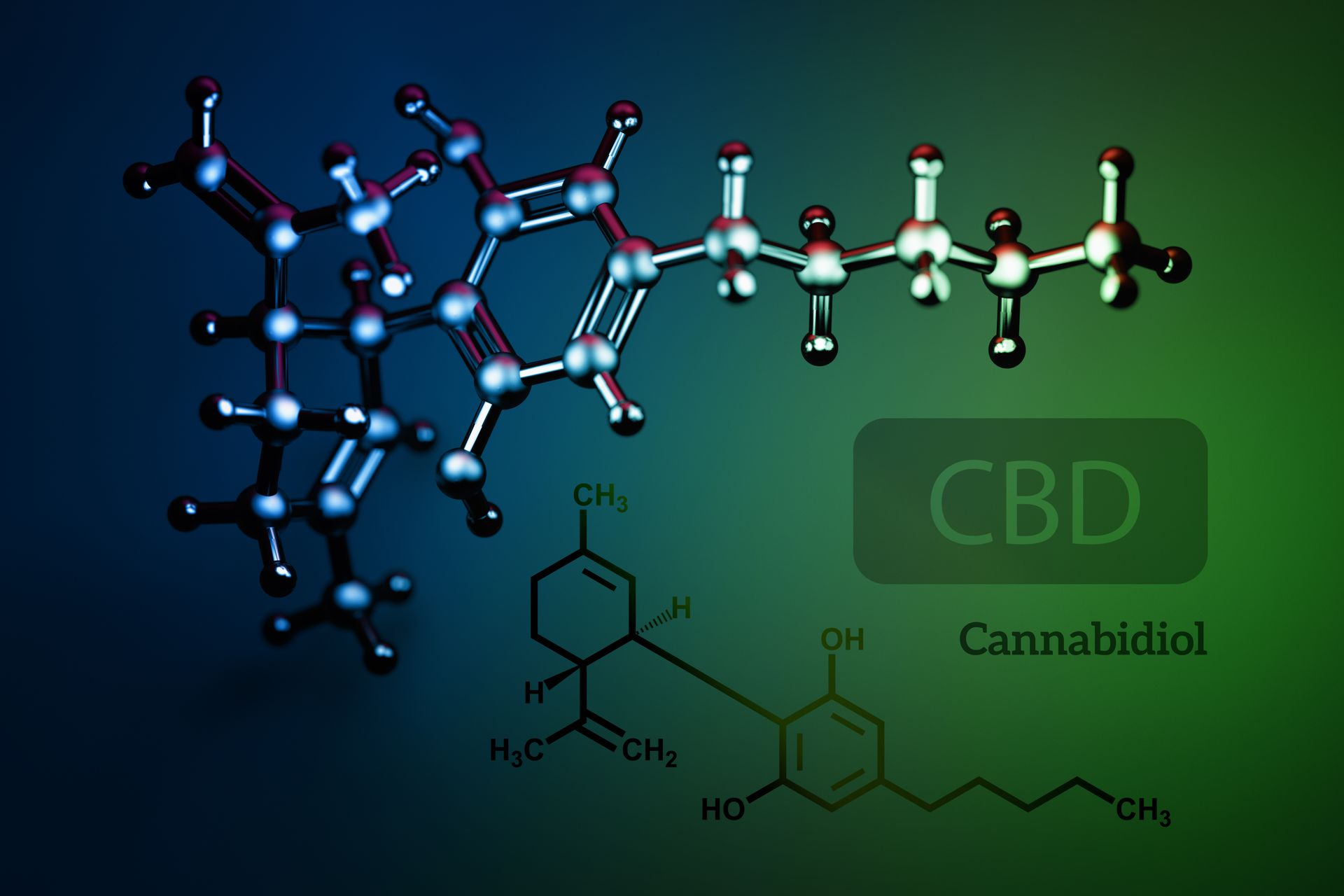Exploring the Possibiities of Cannabigerol (CBG)
What is CBG?

What is CBG? Exploring the Potential of Cannabigerol (CBG)
In recent years, the world of cannabis research has witnessed a surge in interest surrounding lesser-known cannabinoids, among which Cannabigerol (CBG) stands out as a promising candidate. Derived from the cannabis plant, CBG has garnered attention for its diverse array of potential therapeutic benefits and unique properties. In this comprehensive guide, we delve into the intricacies of CBG, exploring its origins, mechanisms of action, and the burgeoning research surrounding its potential applications in health and wellness.
Unraveling the Origins of CBG: From Cannabis Plants to Therapeutic Potential
CBG, short for Cannabigerol, is one of the many cannabinoids found within the cannabis plant. It is considered a precursor to other cannabinoids such as THC (tetrahydrocannabinol) and CBD (cannabidiol). During the growth process of cannabis plants, CBG-A (cannabigerolic acid), the acidic form of CBG, serves as the foundation from which other cannabinoids are synthesized through specific enzymatic pathways. Although present in relatively low concentrations in mature cannabis plants, CBG plays a crucial role in the biosynthesis of other cannabinoids, making it an indispensable component of the cannabis ecosystem.
Understanding the Mechanisms of Action: How CBG Interacts with the Endocannabinoid System
Like other cannabinoids, CBG interacts with the body's endocannabinoid system (ECS), a complex network of receptors and neurotransmitters involved in regulating various physiological processes. CBG interacts primarily with cannabinoid receptors, including CB1 and CB2, which are distributed throughout the body, influencing functions such as mood, pain perception, immune response, and more. By modulating the activity of these receptors, CBG exerts its effects on the ECS, contributing to the maintenance of homeostasis and overall well-being.
Exploring the Potential Benefits: From Anti-Inflammatory Properties to Neuroprotective Effects
Anti-Inflammatory Properties of CBG
One of the most well-documented therapeutic properties of CBG is its potent anti-inflammatory effects. Inflammation serves as a common underlying factor in numerous health conditions, including arthritis, inflammatory bowel diseases (IBD), and neurodegenerative diseases. Research suggests that CBG may help mitigate inflammation by modulating the body's inflammatory response, making it a potential candidate for alleviating symptoms associated with inflammatory conditions.
Potential Benefits in Chronic Pain Management
Chronic pain is a pervasive issue affecting millions of individuals worldwide, often resistant to conventional treatment approaches. CBG has shown promise as a natural remedy for chronic pain, thanks to its analgesic properties. By interacting with cannabinoid receptors and influencing pain perception pathways, CBG may offer relief to individuals suffering from various forms of chronic pain, providing a holistic alternative to traditional pain management strategies.
Neuroprotective Effects and Potential Applications in Neurodegenerative Diseases
Neurodegenerative diseases, such as Alzheimer's and Parkinson's disease, pose significant challenges due to their progressive nature and limited treatment options. Emerging research suggests that CBG may exert neuroprotective effects, potentially slowing the progression of neurodegeneration and preserving cognitive function. By promoting neurogenesis and reducing neuroinflammation, CBG holds promise as a therapeutic agent for managing neurodegenerative diseases and supporting brain health.
Anti-Anxiety and Anti-Depressant Effects
Mental health disorders, including anxiety and depression, represent a growing public health concern, with an increasing number of individuals seeking alternative treatment options. CBG has demonstrated potential anti-anxiety and anti-depressant effects in preclinical studies, attributed to its interactions with serotonin receptors and modulation of neurotransmitter levels. Incorporating CBG into holistic treatment regimens may offer individuals struggling with anxiety and depression a natural alternative to conventional pharmaceutical interventions.
Anti-Bacterial Properties and Potential Therapeutic Applications
In addition to its anti-inflammatory and neuroprotective effects, CBG exhibits notable anti-bacterial properties, making it a promising candidate for combating bacterial infections. Research suggests that CBG may inhibit the growth of certain bacteria, including antibiotic-resistant strains, highlighting its potential as a novel antimicrobial agent. Further exploration of CBG's antibacterial properties may pave the way for the development of new therapeutic interventions for infectious diseases.
Examining the Therapeutic Potential: From Inflammatory Bowel Diseases to Broad Spectrum Benefits
Potential Applications in Inflammatory Bowel Diseases (IBD)
Inflammatory bowel diseases (IBD), including Crohn's disease and ulcerative colitis, pose significant challenges due to their chronic nature and limited treatment options. Preliminary studies suggest that CBG may offer therapeutic benefits for individuals with IBD, thanks to its anti-inflammatory properties and ability to modulate gut function. By reducing inflammation and restoring intestinal homeostasis, CBG holds promise as a natural adjunct therapy for managing symptoms associated with IBD.
Broad Spectrum Benefits: A Holistic Approach to Health and Wellness
One of the most intriguing aspects of CBG is its potential for providing broad spectrum benefits across a range of health conditions. From its anti-inflammatory and neuroprotective effects to its anti-anxiety and antibacterial properties, CBG offers a multifaceted approach to health and wellness. By targeting multiple pathways within the body, CBG may address the underlying mechanisms of various diseases, offering individuals a comprehensive and holistic solution to their health concerns.
Understanding Potential Side Effects and Adverse Reactions
While CBG holds promise as a natural therapeutic agent, it is essential to acknowledge the potential for side effects and adverse reactions, albeit rare. Some individuals may experience mild side effects such as dizziness, dry mouth, or changes in appetite when using CBG. Additionally, interactions with certain medications may occur, necessitating caution when incorporating CBG into existing treatment regimens. Consulting with a healthcare professional before using CBG is advisable, particularly for individuals with underlying medical conditions or those taking medications.
Navigating the Regulatory Landscape: Legal Status and Future Directions
The regulatory status of CBG varies across different regions, reflecting the evolving legal landscape surrounding cannabis and cannabinoids. While some countries have embraced the use of cannabis for medicinal purposes, others maintain strict regulations, limiting access to CBG-based products. As research into CBG continues to expand, the regulatory framework surrounding its production, distribution, and use is likely to evolve, paving the way for increased accessibility and integration into mainstream healthcare practices.
Conclusion: Embracing the Potential of CBG for Health and Wellness
In conclusion, Cannabigerol (CBG) represents a fascinating cannabinoid with significant therapeutic potential and a diverse array of health benefits. From its anti-inflammatory and neuroprotective effects to its analgesic and anti-anxiety properties, CBG offers a holistic approach to health and wellness, addressing multiple facets of well-being. While further research is needed to fully elucidate CBG's mechanisms of action and potential applications, the burgeoning body of evidence underscores its promise as a natural remedy for a wide range of health conditions. As the landscape of cannabis research continues to evolve, CBG holds the potential to emerge as a cornerstone of holistic healthcare, offering individuals a safe and effective alternative to conventional pharmaceuticals.
Servant's Heart Natural Well-Being Products
Please visit Servant's Heart's website for THC-free, all-natural, affordable, high quality, and potent CBG products, including gummies and topical.
Additional CBG Resources:
What Is CBG? Benefits, Risks And More – Forbes Health
Cannabigerol (CBG): Uses and Benefits (verywellmind.com
What is CBG? Commonly referred as mother of cannabinoids (texasoriginal.com
CBG vs. CBD: Differences and therapeutic benefits (medicalnewstoday.com
What is CBG? A Beginner's Guide to Its Benefits and Uses (cannovia.com
The Origin and Biomedical Relevance of Cannabigerol - PMC (nih.gov
The CBG Cannabinoid, Explained - City Cast Denver
seattlemet.com/discover/cbd/cbg-vs-cbd/
CBG Oil: Is It Really the New CBD? (healthline.com)
Is CBG the Next CBD? Here's What You Should Know (realsimple.com)
What is CBG? - CBG Benefits – Lily Hill (lilyhillcbd.com)
What Is CBG? A Beginners Guide | CBD One (cbd-one.co.uk)
What is CBG? | Wyld - The Nation's Leader in Cannabis Edibles (wyldcanna.com)
What is CBG? Cannabigerol and Its Uses - USA Medical
https://www.ncbi.nlm.nih.gov/pmc/articles/PMC6021502/
https://www.ncbi.nlm.nih.gov/pmc/articles/PMC8669157
https://www.ncbi.nlm.nih.gov/pmc/articles/PMC6915685/
https://www.ncbi.nlm.nih.gov/pmc/articles/PMC1772142/
https://www.ncbi.nlm.nih.gov/pubmed/18681481
https://www.ncbi.nlm.nih.gov/pmc/articles/PMC5928495/
https://www.ncbi.nlm.nih.gov/pmc/articles/PMC4650206/
https://www.ncbi.nlm.nih.gov/pubmed/19112869
https://www.ncbi.nlm.nih.gov/pubmed/26197538
https://doi.org/10.3390/molecules27020491
https://doi.org/10.1089/can.2021.0058
https://doi.org/10.7759/cureus.36148
https://doi.org/10.1016/B978-0-12-800756-3.00088-0
https://doi.org/10.1155/2022/3336516
https://doi.org/10.1016/j.fitote.2021.104915
https://doi.org/10.2478%2Facph-2021-0021
https://doi.org/10.1093%2Fibd%2Fizy014
https://doi.org/10.3390%2Fijms22179472
https://doi.org/10.1016%2Fj.biopsych.2015.07.028
https://pubmed.ncbi.nlm.nih.gov/29977202/
https://pubmed.ncbi.nlm.nih.gov/32470563/
https://pubmed.ncbi.nlm.nih.gov/18681481/
https://pubmed.ncbi.nlm.nih.gov/25252936/
https://pubmed.ncbi.nlm.nih.gov/25269802/
https://pubmed.ncbi.nlm.nih.gov/27439375/
https://www.sciencedirect.com/science/article/abs/pii/S0008874918300911
https://www.sciencedirect.com/topics/chemistry/cannabigerolic-acid
https://en.wikipedia.org/wiki/History_of_medical_cannabis
https://en.wikipedia.org/wiki/Doi_(identifier)
https://www.yalemedicine.org/conditions/marijuana-use-disorder









